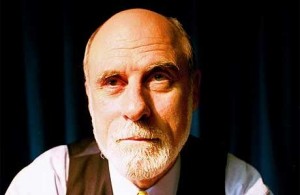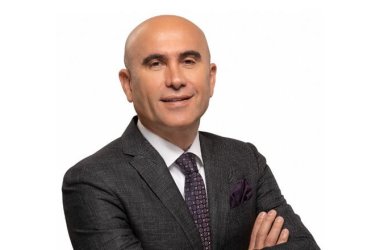 Work under way to draft new regulations at the World Conference on International Telecommunications (WCIT) in Dubai this week could harm the Internet, warned Internet pioneer and Google executive Vint Cerf.
Work under way to draft new regulations at the World Conference on International Telecommunications (WCIT) in Dubai this week could harm the Internet, warned Internet pioneer and Google executive Vint Cerf.
“The Internet is under threat” from proposals at the WCIT, Cerf said at the Usenix LISA (Large Installation System Administration) conference in San Diego on Wednesday.
The Internet is not controlled by any one nation and the best way to deal with issues that arise continues to be through informal agreements among interested parties, he argued. The purpose of the WCIT is to update the agreements guiding the United Nations’ International Telecommunications Union (ITU). In keeping these regulations up-to-date, though, it may attempt to extend the reach of ITU over the Internet.
“The natural reaction of any institution that wants to preserve its existence is to reach out for new territory,” Cerf said of the ITU.
His comments may have been prescient, coming just hours before a controversy broke out at the conference, with the Internet Society suggesting that new regulations on the Internet may have been added improperly to the regulations.
The WCIT is updating the International Telecommunication Regulations (ITRs), which currently focus mainly on international billing and inter-system connectivity standards. Much of the new work around the Internet, which barely existed when the ITR was last updated in 1988, is hotly politicised. According to a number of reports, Russia was planning to submit a proposal at WCIT that would allow multinational control over the Internet. The U.S. representative for WCIT had threatened to walk out of the meeting as a result.
The Russian proposal was shelved, though other countries have lobbied for wresting control of domain name management from the U.S.-backed Internet Corporation for Assigned Names and Numbers (ICANN) and for allowing deep packet inspection of Internet traffic.
“No one is in charge” of the Internet, Cerf reminded the audience. And this lack of control seems to perplex government officials, he said. He recounted how, in 2003, he explained to government diplomats at the Internet Governance Forum how the Internet was managed. “They absolutely refused to believe it was possible to have a distributed system of this scale and magnitude that wasn’t centrally controlled,” he said.
Funded by the U.S. Department of Commerce, ICANN does manage the names and addresses for the Internet, though it does not have any control over the Internet itself, Cerf said. “While there are probably some legislators in the U.S. who would like to believe [the U.S. controls the Internet], in fact it is a highly distributed, very collaborative environment,” Cerf said.
Cerf, along with Robert Kahn, developed the TCP/IP stack that provided a way for different networks to communicate with one another, which in turned created the Internet. Cerf now works at Google as its chief Internet evangelist. He has also served as the chairman of ICANN.
Both Google and Cerf have posted critical views of the WCIT work in the past few weeks. Web creator Tim Berners-Lee has also spoken out against WCIT.
Some of the push for new ITU guidelines comes from authoritarian governments that are members of the WCIT and wish to clamp down on the Internet, Cerf said. “If you are an authoritarian government, then the Internet is a threat. The Internet is the most democratising engine ever invented,” Cerf said. “Never in the history of the ITR has content been an issue. Can you imagine having international regulations about what you are allowed to say on the telephone?”
The WCIT work could also be seen as an attempt by the ITU to extend its reach to the Internet, especially as ITU’s own influence appears to be waning, Cerf suggested. He noted that ITU was originally set up in the 19th century to establish guidelines for the telegraph, though it later was modified to handle telephony and then telecommunications systems.
The ITU has developed many low-level data and voice communications protocols, such as ISDN (Integrated Services Digital Network), x.25 and ATM (Asynchronous Transfer Mode), though these standards are being used less frequently these days as they are replaced by the Internet. “In the last decade, communication applications that used to be done on specialised networks have migrated over to the Internet,” Cerf said, citing examples such as telephony and video streaming. “The specialised networks are becoming less and less important and therefore many of the standards that ITU is responsible for are becoming less important.”
The Internet Protocol (IP) “runs over everything, including you if you’re not paying attention,” Cerf joked.
During a question-and-answer period, one attendee wondered if universal Internet problems such as viruses and spam would best be treated at the international level, given how easily the creators of these issues can evade the reach of any one country.
Cerf agreed that an international response would be best, but said he was “not sure international regulation is the right tactic.” He urged that nations could work together in a more informal fashion, in much the way that the IETF (Internet Engineering Task Force) has no formal membership but still solves pressing technology challenges.
“Some informality may turn out to be the best tactic,” he said.





